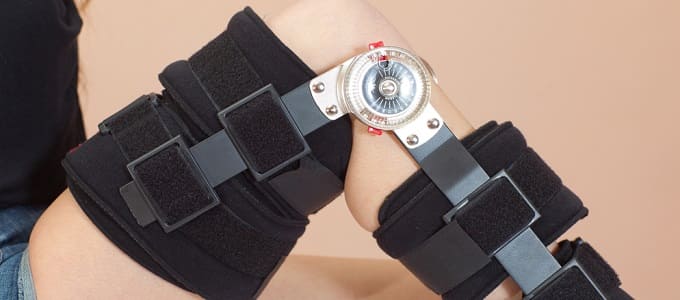
Problem
Bone and cartilage separation, or osteochondritis dessicans, is a condition in which the bone (osteo-) and cartilage (chondro-) aberrantly separate or break off (desiccare is Latin for "to dry up"). Its cause is unknown, but theories include a localized impairment of blood supply, unfavorable metabolic conditions, or repetitive trauma. Some experts postulate that it is inheritable. It usually appears without warning in children 6 to 14 years of age.
Symptoms
An achy knee with minimal swelling may be the first symptom, and complaints of the knee′s giving way, catching, or locking will follow if the cartilage and bone partially separates. If they totally separate, the patient may rightly sense that a part of the knee is loose inside its framework. Occasionally osteochondritis dessicans is detected on X-ray films taken for other complaints before the child reports symptoms.
Solutions
Exercise, protection, support, and anti-inflammatory drugs are the mainstays of treatment, and sometimes surgery is necessary. When symptoms first appear, such non-weight-bearing exercise as swimming or biking is best to unload the joint, and anti-inflammatory medication should decrease the pain and swelling. Some patients find help in a knee brace or support. A physician may order X-ray films to better identify the lesion and determine if the cartilage and bone have separated. Magnetic resonance imaging also provides this information and can help the physician follow healing after intervention. A computerized tomography scan of the bone can tell how much activity is localized in the lesion. If non-surgical therapy fails to improve the condition, arthroscopic drilling may stimulate the bone to fill in the defect. Sometimes during arthroscopic surgery, the loose cartilage and bone can be reattached with screws or pins. Occasionally, when pieces are loose, they are beyond being reattached and must be removed. After surgery, most patients are able to return to sports and work without difficulty; however, a small percentage goes on to have localized arthritis or wearing in this location.
This is a section from Dr. Jack E, Jensen′s book The One Stop Knee Shop. Read the next section Pain in the Kneecap.


